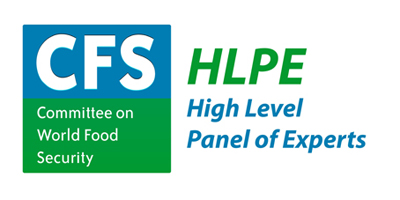A New Action Agenda on Food Insecurity

Addressing food insecurity in protracted crises, the Food and Agriculture Organization (FAO) convened its 39th session of the Committee on Food Security (CFS) in Rome, 15–20 October 2012, preceded by a Civil Society Mechanism (CSM) Coordination Committee Meeting , 11–12th October, and the forum of the Civil Society Mechanism (CSM) on 13–14 October.
The CSM, for its part, reviewed the draft outcome document and policy recommendations coming out of the High-Level Expert Forum on Food Insecurity in Protracted Crises (HLEF) in September 2012 (see Land Times No. 4). The document proposed a process to arrive at an Agenda for Action (“A for A”) that would chart a significant policy shift of the UN specialize agency.
Some 150 diverse civil society organizations participated in the October CFS sessions, forming nine working groups organized on priority issues. In the MENA region, Joseph Schechla of Habitat International Coalition’s Housing and Land Rights Network served as rapporteur for the Protracted Crises Working Group, with Razan Zuayter of the Arab Group for the Protection of Nature (Jordan) as general CSM coordinator.
Already, the CSM concluded that many of its issues and themes had been incorporated in the CFS outcome document from the HLEF. Notably, the key issues included a recognition of the need for competent political economy analysis of conflict situations affecting food security, putting communities at the center of accountability and assessment mechanisms, inclusion of civil society in all processes, identifying and addressing root causes and combining technical and political responses to resolve crises, not just manage within them. Consistent with a current trend in development discourse, a central theme of the deliberations and the outcome document was “resilience” at the personal, household and national levels, and building resilience before, during and after crises. The CFS also recognized the repeatedly expressed need to incorporate accountability within the post-MDG dialogue on peace-building and state-building goals.
However, the CSM proffered advice and input to enhance the HLEF outcome document by recognizing needed accountability for causes of crises, incorporating human rights and state obligations, and generally acknowledging the legal dimension of political and technical interventions. The CSOs also proposed an inventory of legal norms to guide immediate action and the “A for A”, explicitly citing the duty to ensure social protection and that UN Charter-based agencies acknowledge their inherent human rights mandate.
It proposes new oversight and implementation mechanisms that include a CFS Open Ended Working Group (OEWG) to oversee the consultative process and ensure ownership by all stakeholders. The OEWG would meet at least twice to provide a platform for discussion and consensus building around a draft Agenda for Action and regularly update the Bureau and Advisory Group on progress.
The CFS Steering Committee will continue to support the process, while expanding its membership to include the UN Office for the Coordination of Humanitarian Affairs (OCHA) Office of the High Commissioner for Human Rights and other relevant organizations. The Steering Committee would be tasked with preparation of the “A for A,” as well as provide overall guidance to a Technical Support Team.
In addition to the joint CFS Secretariat, the Technical Support Team will include staff from several technical divisions of FAO, WFP and IFAD. Its principal tasks will be to prepare background documents, organize regional and global consultations, and providing technical inputs throughout the consultative process.
The consultation process to develop the “A for A” will be open to all key stakeholders, including practitioners and academics in the areas of food security and peace building, national and regional policymakers, civil society representatives, private-sector associations, UN agencies and international agricultural research systems.
Two different plans for the new “A for A” are proposed. One aims at completing the process by 2013, with an endorsement of the “A for A” at the CFS 40th session. That would allow the CFS to respond to the sense of urgency already expressed, but allow for minimal consultation. The alternative would be to complete the consultative process by 2014, enabling also the inclusion of the 2014 FAO Regional Conferences in the schedule.
Civil society reactions to the proposed process are currently being collated and developed through the CSM working group on Protracted Crises and Conflicts. The working group welcomes further comments, of which can be sent directly to the working group coordinator, Razan Zuayter (razan.zuayter@gmail.com).
|